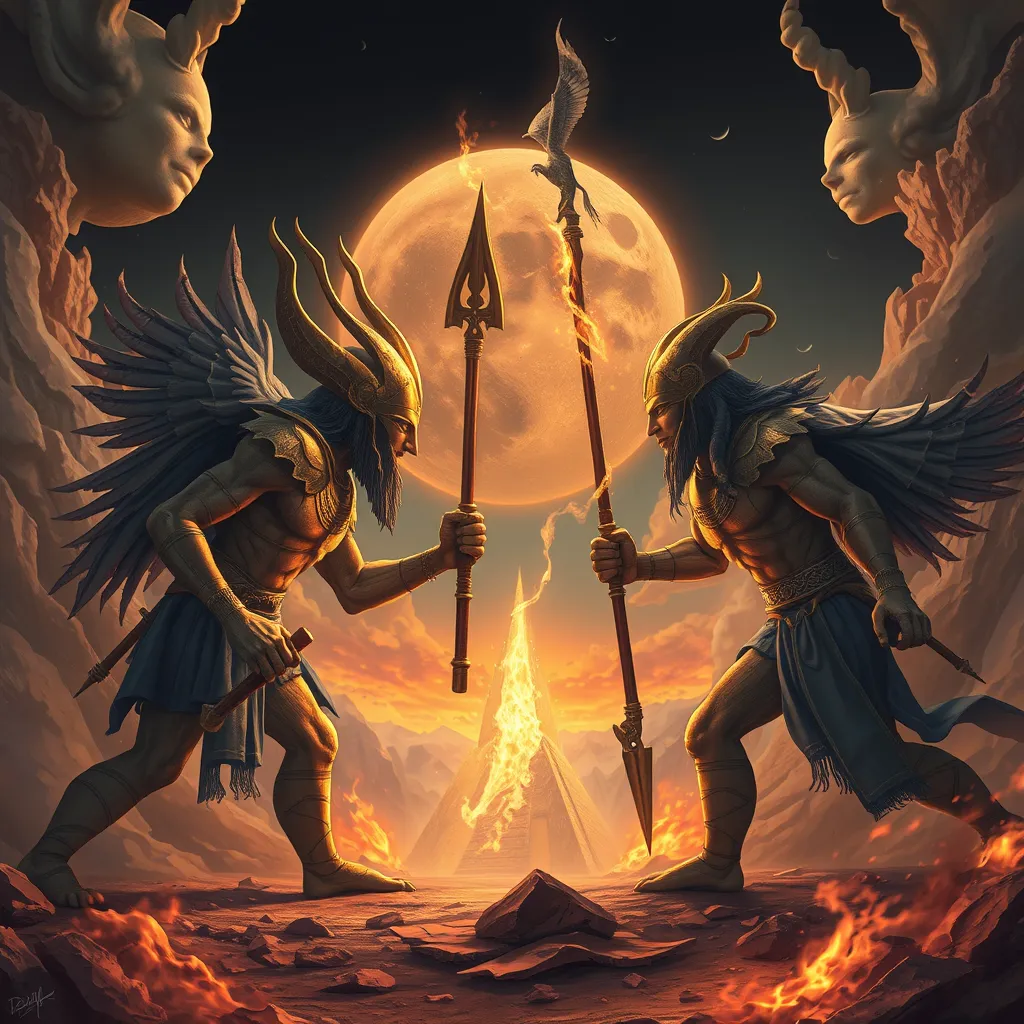What Happens When Gods Go to War?
I. Introduction
Divine warfare can be defined as the conflict between gods or deities, often resulting in significant consequences for both the divine and mortal realms. Throughout history, gods have played a pivotal role in various mythologies and religious beliefs, influencing cultures and shaping human understanding of the world. This article will explore the concept of divine warfare, its historical context, mechanics, consequences, psychological implications, modern interpretations, and case studies of iconic divine wars.
II. Historical Context of Divine Warfare
Ancient civilizations often worshipped a pantheon of gods, each associated with different aspects of life and nature. From the Olympian gods of Greece to the Vedic deities of India, these divine figures were believed to engage in battles that mirrored the struggles faced by humans.
- Ancient Civilizations and Their Pantheons: The Egyptians, Greeks, Norse, and many others had intricate belief systems centered around gods who often clashed in spectacular conflicts.
- Notable Mythological Wars: Key examples include the Titanomachy, where Zeus and his siblings fought against the Titans, and Ragnarok, the Norse apocalypse marked by a great battle between gods and giants.
- The Role of Divine Conflict: These myths were not just stories; they served to explain natural phenomena, instill moral values, and provide a framework for understanding human existence.
III. The Mechanics of Divine Warfare
The nature of divine warfare is characterized by the extraordinary powers and abilities that gods possess, making their conflicts unlike any human war.
- Powers and Abilities: Gods often wield immense power that can alter reality, control elements, and manipulate time and fate.
- Weapons and Artifacts: Many deities are associated with unique weapons, such as Thor’s hammer Mjölnir, Athena’s shield, or the Pandavas’ celestial weapons in the Mahabharata.
- The Influence of Mortal Actions: Mortals often play a crucial role in divine conflicts, whether through acts of devotion or defiance that provoke the gods.
IV. Consequences for the Mortal Realm
When gods engage in war, the repercussions extend far beyond the divine realm, significantly impacting humanity.
- Natrual Disasters and Plagues: Many myths depict natural disasters, such as floods or earthquakes, as manifestations of divine anger or as a consequence of divine battles.
- Impact on Human Societies: Wars among gods often lead to the rise and fall of civilizations, influencing political structures, cultural practices, and religious beliefs.
- Moral and Ethical Lessons: These stories often serve as cautionary tales, teaching humanity about the consequences of hubris, the importance of piety, and the complexities of divine justice.
V. Psychological and Philosophical Implications
Divine warfare offers a lens through which to explore deeper human concerns and existential questions.
- Exploration of Human Nature: The conflicts between gods often reflect human emotions, such as jealousy, love, and vengeance, providing insights into our own nature.
- Good vs. Evil: Many mythologies depict a struggle between good and evil, often personified by opposing deities, prompting reflection on moral dilemmas.
- Power and Responsibility: The actions of gods in war raise questions about the nature of power, authority, and the responsibility that comes with it.
VI. Modern Interpretations and Representations
Today, the theme of divine warfare continues to resonate in various forms of media, reflecting its enduring relevance and fascination.
- Divine Warfare in Literature and Film: Works like “Clash of the Titans” or “American Gods” explore the implications of divine conflict in contemporary narratives.
- Contemporary Society and Ancient Mythologies: Many modern stories draw parallels between ancient myths and current social issues, illustrating the timelessness of these themes.
- Enduring Legacy in Popular Culture: Video games, such as “God of War,” and blockbuster films often explore the themes of divine conflict, showcasing their lasting appeal.
VII. Case Studies of Iconic Divine Wars
Analyzing specific instances of divine warfare provides a deeper understanding of their significance and impact.
- The Trojan War: In this epic conflict, gods such as Aphrodite, Hera, and Athena took sides, directly influencing the outcome of the war and the fate of its heroes.
- The Mahabharata: This ancient Indian epic features divine intervention at several key moments, demonstrating the complex relationship between mortals and gods.
- Comparative Analysis: By examining different mythologies, we can see common themes in divine warfare, such as the struggle for power, justice, and the cyclical nature of conflict.
VIII. Conclusion
In conclusion, the exploration of divine warfare reveals profound truths about human nature, morality, and the enduring struggles that define our existence. The relevance of these ancient stories continues to resonate in today’s world, reminding us of the complexities of power and the impact of conflict. Our fascination with gods at war speaks to the universal themes of struggle, sacrifice, and the quest for meaning, ensuring that these narratives will endure for generations to come.




